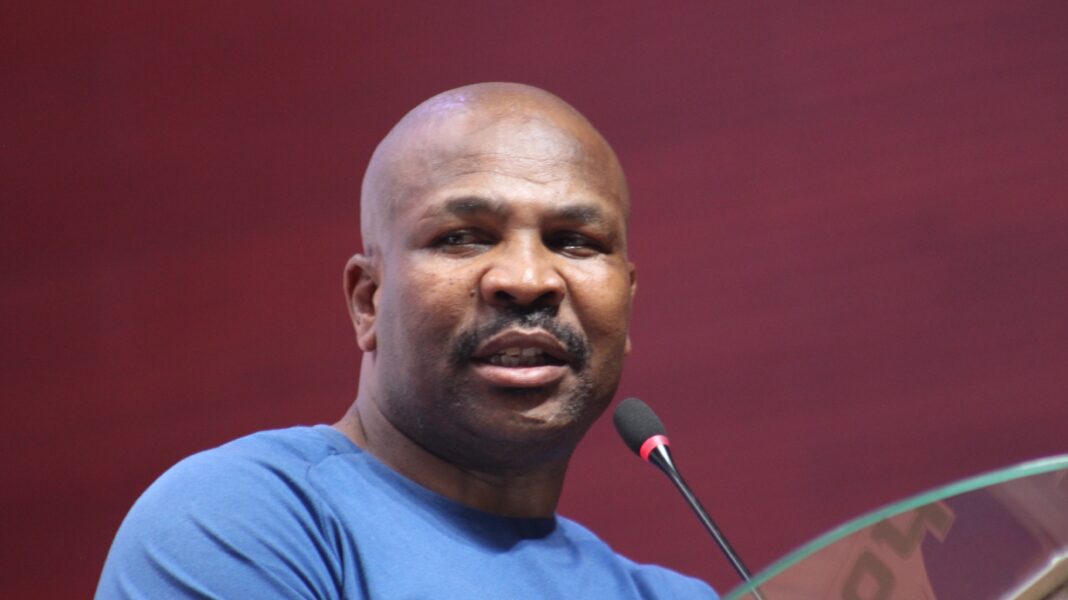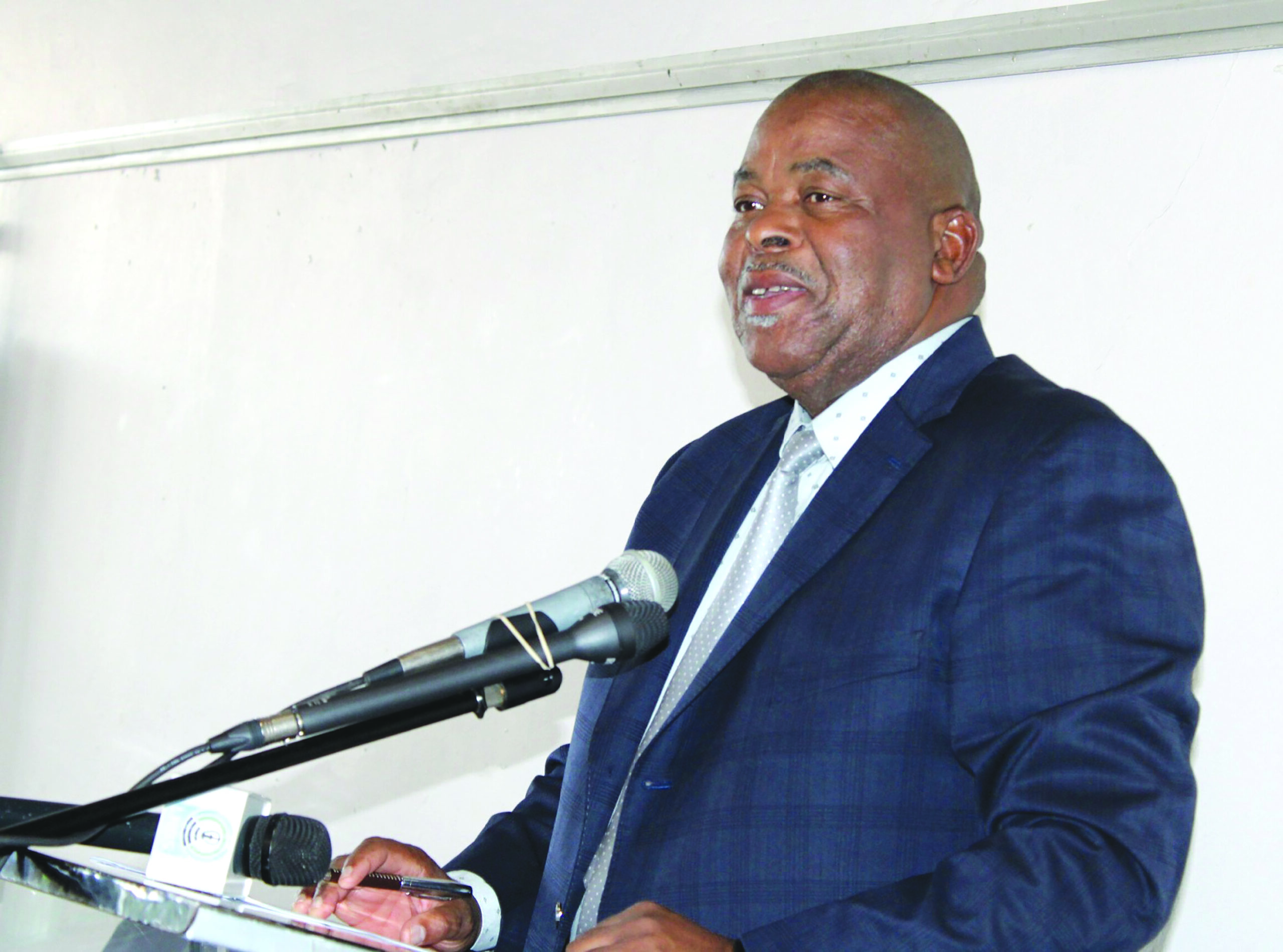Staff Reporter
The public relations manager of the Independent Electoral Commission (IEC) Tuoe HantÅ¡i faces a disciplinary hearing over what the commission’s director of elections Mpaiphele Maqutu says is “gross insubordinationâ€.
Hantši has a result, applied for an urgent court application to stop the disciplinary inquiry scheduled for June 16 this year.
He said in court papers it was clear that Maqutu was on the warpath against him and was determined not to recognise him as the public relations manager.
He wants the court to declare that the power to discipline employees of the IEC vests in the commission and not in the director of elections, in terms of section 145 of the national assembly electoral act of 2011.
The court should also declare that any disciplinary code or human resource policy or manual of the IEC granting the disciplinary power over the members of the staff to the director of elections is invalid on account of being inconsistent with the above-mentioned section of the electoral law.
He also wants the court to declare that the decision of Maqutu purporting to disciplinarily charge him and the decision to appoint a chairperson of the disciplinary hearing be “quashed and/or reviewed or corrected on account of such decisions being arbitrary, ultra vires, irregular, illegal, unlawful, irrational, mala fide, and in violation of natural justice principlesâ€.
Principal Secretary (PS) of the Ministry of Law, Constitutional Affairs and Human Rights, Tanki Mothae, has been appointed the chairperson of the disciplinary inquiry according to the copy of the notice of a disciplinary hearing and charge sheet attached to court papers.
Hantši alleges in the court papers that Maqutu once said in a meeting that he would see to it and make sure that he does not procure a chairperson that will not arrive at an outcome that he as a director, does not desire.
He said he was shocked to hear such revelations.
“The First Respondent (Maqutu) has himself appointed a chairperson to hear the disciplinary hearing whereas he appears to be the complaint outside of any legal instrument lawfully and legally authorizing/bestowing on him the powers to do so,†Hantši said.
“Needless to mention, it is apprehensively illegal, arbitrary, unreasonable, unconscionable, and ultra vires that the First Respondent issues the disciplinary charges wherein he is a complainant and at the same time exercises powers to appoint a presiding officer to chair a matter in which he is a complainant,†he added.
Hantši is charged in terms of the codes of practice of 2008 and faces three charges.
Charge 1
Breach of Section 3(1)(k) of the codes of good practice which states that “a public officer shall show courtesy and decency in his or her communication about any person or matter that is under consideration or forms the subject of comment or responseâ€.
Charge 2
Breach of Section 3(1)(i) of the codes of practice which states that “a public officer shall refrain from use of insulting or intimidating words to the authority, fellow public officer or members of the public or from showing disrespect to any of themâ€.
Charge 3
Breach of Section 3(2)(f) which states that “a public officer shall not by any act or omission willfully fail to comply with, or willfully disregard, any provision of a law or any lawful instruction given by any proper authorityâ€.
According to the charge sheet, on May 29 this year, Hantši and a temporary employee assigned to his office were called to Maqutu’s office by his executive secretary to provide daily work updates.
Hantši allegedly told the executive secretary that he was not in a position to go to Maqutu’s office as he had repeatedly told Maqutu that he should never call him to his office in the presence of his (Hantši’s) subordinates.
The charge sheet reads: “Additionally, later on the very same morning, the executive secretary to the director of elections advised you (telephonically and even followed it up with a personal visit to your office) to present yourself to the office of the director of elections to explain away why you failed to heed his earlier request to meet with you; where you outlined to her that you will do no such thing; but rather you will forbid the temporary employee to ever oblige to attend a call to present herself in the office of the director of elections.â€
Hantši has emphasized that he cannot, under any circumstances, refuse when called by the director of elections.
“I will never disobey such instructions from him,†he said in a letter to Maqutu on May 29.
He said it was unfortunate that while they were waiting for a call from Maqutu’s office he had a visitor he needed to attend to and therefore when the call eventually came from Maqutu’s office, he instructed the temporary employee to attend the meeting “to avoid keeping the director of elections waitingâ€.
“It might have appeared like I have defied the instruction, but the truth of the matter was that, I did not refuse nor intended to,†he said.
Summary
- The court should also declare that any disciplinary code or human resource policy or manual of the IEC granting the disciplinary power over the members of the staff to the director of elections is invalid on account of being inconsistent with the above-mentioned section of the electoral law.
- He also wants the court to declare that the decision of Maqutu purporting to disciplinarily charge him and the decision to appoint a chairperson of the disciplinary hearing be “quashed and/or reviewed or corrected on account of such decisions being arbitrary, ultra vires, irregular, illegal, unlawful, irrational, mala fide, and in violation of natural justice principlesâ€.
- “Needless to mention, it is apprehensively illegal, arbitrary, unreasonable, unconscionable, and ultra vires that the First Respondent issues the disciplinary charges wherein he is a complainant and at the same time exercises powers to appoint a presiding officer to chair a matter in which he is a complainant,†he added.

Your Trusted Source for News and Insights in Lesotho!
At Newsday Media, we are passionate about delivering accurate, timely, and engaging news and multimedia content to our diverse audience. Founded with the vision of revolutionizing the media landscape in Lesotho, we have grown into a leading hybrid media company that blends traditional journalism with innovative digital platforms.









